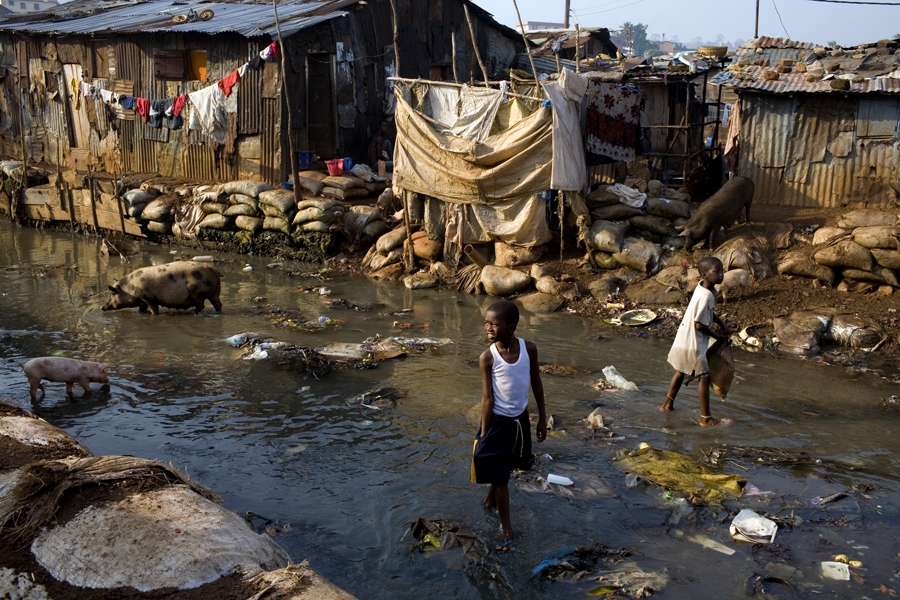Analysis
African cities are growing, but development stagnates
African wealth has been consistently growing by 4.9% per year on average, but it has been distributed in an extremely unequal way, both in terms of social classes and geographically.

In Africa, COVID, like other pandemics, is leading people to suspect divine intervention: “It is a punishment from God.”
“But what if the divine is accusing us?” a missionary asks. What could we answer if we were called to account: Who built the shantytowns with 80,000 people per square kilometer? Who built cities with 10-20 million inhabitants? Who failed to bring water, sewage and electricity to houses? Who has made the inhabitants refugees and beggars in their own country? Who has ensured that huts made of mud and sheet metal form a substantial part of the real estate market in cities like Nairobi?
What COVID is doing most prominently is bringing the issue of cities to our attention: that of an ill-planned urban system made up of a few large cities that alone have more than half the urban population of a country. Such concentration poses formidable problems, which are qualitatively magnified by scale: it is one thing to collect waste in 20 cities of one million inhabitants, and quite another to collect it in a megalopolis of 20 million like Lagos.
But what does this urbanization consist of? Essentially, it is “urban growth without the city,” because 70% of the new inhabitants end up in shantytowns. These are issues we already knew about, but which the virus has highlighted in a dramatic fashion.
The problem in sub-Saharan Africa is that these cities are putting even the most well established economic theories into crisis. The solid correlation between urbanization and economic development is in fact disappearing: the cities continue to have more and more inhabitants without a corresponding increase in per capita income. It should be noted that at the beginning of the last century, only 5% of the population of the African continent lived in cities; in 1950, this was already 14% (27 million people), while now, according to the World Bank’s most recent estimates, it is 42%, or over 600 million people. (There are some countries where this number has grown much faster, such as Uganda, where urban growth is 32,810% compared to 1950).
At the same time, there is a disproportionally positive effect of city growth on economic development. According to UN-Habitat, the first six cities in South Africa have 31% of the population but produce 55% of the national income. Johannesburg alone contains 6.3% of the population and contributes 15% of the national wealth, while occupying only 0.14% of the territory.
“No country has ever achieved sustained economic growth or rapid social development without urbanizing,” the UN-Habitat researchers explain. “Thanks to superior productivity, urban-based enterprises contribute large shares of gross domestic product (GDP) … High urban densities reduce transaction costs, make public spending on infrastructure and services more economically viable, and facilitate generation and diffusion of knowledge, all of which are important for growth.”
However, this growth does not reach the lower classes of the population, as it fails to cross the borders within the city: physical, economic and moral borders that turn the slums into places where the same condition of marginalization is reproduced.
The growth of wealth in Africa has been constant in recent years (4.9% on average), but it has been distributed in an extremely unequal way, both in terms of social classes and geographically. The effect is an endemic lack of investment in rural areas—a lack of support for the family economy and a lack of soil protection policies—but also a lack of investment in social housing in cities. This leads not just to a breakdown in local aesthetics, but to one which extends to the link between urbanization and democracy: the nature of the city is moving away from its historical function of expanding rights.
It’s not COVID’s fault that mama Naomi goes to sleep in a nine-by-six-foot room in the popular Kariobangi district of Nairobi, together with her four children, on a blanket draped across the floor. The virus simply shows us how many divisions we still have to surpass in our neighborhoods, in our policies and in our economies to reconnect to others and to ourselves: the distancing was already a fact before the pandemic, and it was much more than just social.
Originally published at https://ilmanifesto.it/senza-sviluppo-ne-democrazia-le-megalopoli-africane-nella-lente-del-covid/ on 2020-07-15
